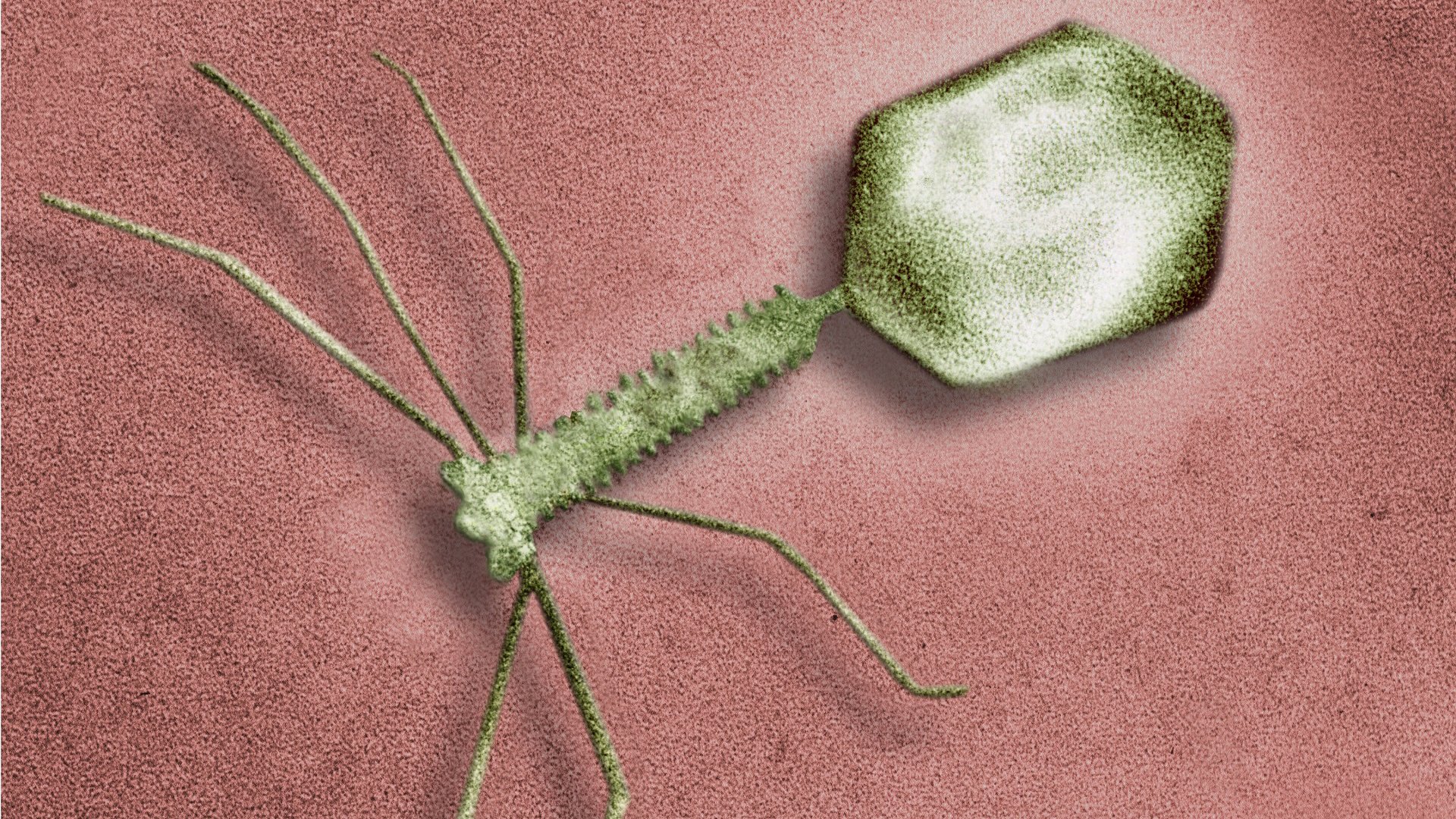BioTech
Bacteriophages Could Reduce Harm Caused by Fracking, A Notoriously Divisive Practice
Securities.io is not an investment adviser, and this does not constitute investment advice, financial advice, or trading advice. Securities.io does not recommend that any security should be bought, sold, or held by you. Conduct your own due diligence and consult a financial adviser before making any investment decisions.

Biotech To Limit Fossil Fuel Pollution
The rise of shale oil & gas production in the US has been a major change in the global energy landscape. It single-handedly reverted the decline in US production, as conventional oil & gas fields production started declining in the 1970s.

Source: EIA
Shale oil production also comes with massive water consumption, with 1.3 billion barrels of water used for production well stimulation, as well as an annual produced water (PW) volume of 1.6 billion barrels.
This produced water (PW) is the main environmental waste of the shale industry (ignoring carbon and methane emissions). It contains ions (salts) as well as volatile organic compounds (VOCs), hydrocarbons, and other organic compounds, creating a very complex chemical mix. This mix is also a perfect breeding ground for bacteria.
Currently, PW is often processed and re-injected in oil wells to help maintain pressure in the shale oil deposit. The problem is that the bacteria proliferation can cause many problems, from pipe corrosion by Pseudomonas aeruginosa oxidizing iron to Bacillus megaterium decomposing hydrocarbons, the very goal of shale oil extraction.
To solve it, PW is sanitized using many methods, including oxidizing agents (ozone, permanganate, and hydrogen peroxide) or glutaraldehyde, hypochlorite, peracetic acid, and other biocides; all of these compounds are energy-expensive to produce and can be polluting themselves.
Worse, the bacteria are quickly evolving to adapt to them, requiring increasingly high concentrations to maintain efficiency. This is similar to the emergence of antibiotic resistance in hospitals.
A new type of bacteria killer, a class of viruses called bacteriophage, could be leveraged to solve the problem.
(we discussed bacteriophages in the context of antibiotic resistance and therapy in “Creating Living Antibiotics: BiomX vs Armata”)
Bacteriophages Against Bacteria
Bacteriophages are viruses specialized in infecting bacteria and are harmless to other lifeforms. They multiply by injecting their genetic material into the bacteria, forcing it to make more bacteriophages.
They function through a system of ‘lock and key', primarily depending on the interaction of the phage with receptors found on the bacterial cell surface. This means that most bacteriophages are ultra-specialized, often targeting only one species of bacteria.
As bacteriophages are themselves “alive”, they can co-evolve with the bacteria and adapt to most resistance that would appear when using chemicals or antibiotics.

Source: Britannica
Bacteriophages are also known to work even in hostile environments, like salty water, high temperature, or extreme pH. So they might be a perfect option for killing bacteria in shale-produced water.
Bacteriophages To Clean Waste Water
Researchers at the University of Texas and Universidad Nacional Pedro Henríquez Ureña in the Dominican Republic have investigated the potential of bacteriophages against Pseudomonas aeruginosa and Bacillus megaterium. The two bacteria were chosen for their contribution to problems in shale water processing and for the commercial availability of bacteriophages targeting them.
The researchers demonstrated that in the presence of phages, P. aeruginosa failed to proliferate in the wastewater. For B. megaterium, a mix of 2 phage species called Slash and Palmer has proven to be more effective than a single phage treatment to eliminate the bacteria.
Future Progress with Bacteriophages
In order for this solution to become more widely adopted, mass production of the phages and protocol to incorporate them in shale wastewater processing are needed.
Another limitation is that each bacteriophage is very specific to a bacterial species, so targeting other bacteria will require a larger phage bank and more commercially available phages than currently available.
In any case, this proves the potential for a biological option in processing shale-produced water, greatly reducing the need for polluting and energy-intensive chemical treatment.
Bacteriophages Companies
Many companies are working on bacteriophage technology, but only a few are publicly traded. Most are focused on therapeutic applications, as these tend to be a much more profitable market, although also one facing much stricter regulations.

Source: Pharmaceutical Technology
1. BiomX
BiomX Inc. (PHGE +1.72%)
BiomX is a bacteriophage company focused on treating antibiotic-resistant infections related to cystic fibrosis and Staphylococcus aureus infections in diabetic foot osteomyelitis (DFO).
There are 17,000 cystic fibrosis patients in the US and Western Europe with chronic PsA infections, creating a potential commercial opportunity of $1.6 billion worldwide.
DFO is the cause of the majority of 160K lower limb amputations in diabetic patients annually in the US, creating a potential commercial opportunity of $2 billion worldwide.

Source: Biomx
In March 2024, it merged with its competitor Adaptive Phage Therapeutics, giving it 2 products in phase II of clinical trials, with results expected in 2025.

Source: Biomx
Initial clinical results have been promising, including penetration of biofilms (the key problem in DFO treatment failures) and a good safety profile, as well as no development of resistance by the bacteria.
BiomX is also looking at treatment for skin infections (atopic dermatitis), with research still in the pre-clinical stage.
2. PHAXIAM Therapeutics (PHXM.PA)
France-based Phaxiam is the result of the merger in June 2023 of phage-focused companies Pherecydes Pharma and Erytech Pharma.
The company pipeline is focused on bacteria also targeted by BiomX, Staphylococcus aureus, and Pseudomonas aeruginosa, as well as Escherichia coli.
Most of the phase 2 clinical trials are expected to be launched in 2025.

Source: Phaxiam
The company's R&D pipeline seems promising, but the decline in stock price over the last few years indicates investors' concerns regarding its financial stability. In April 2024, it announced having a cash runway going only into September 2024, and is “Reviewing options to further extend cash runway”.











